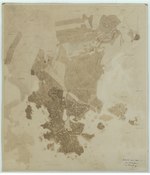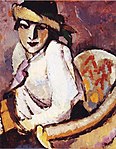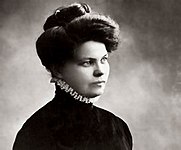GLAM/Newsletter/February 2021/Contents/Finland report
|
Focus on learning

Save the date! Hack4OpenGLAM will be arranged 20–24 September 2021. Take part in the survey to set the agenda!
Hack4OpenGLAM cultural hackathon took place for the first time last year at the Creative Commons Global Summit. AvoinGLAM (a joint GLAM working group with Wikimedia Finland, Open Knowledge Finland, and Creative Commons Finland) is seeking to arrange it again in 2021.
GLAM hackathons have been arranged as in-person events in countries around the world. Hack4OpenGLAM wishes to become a global online doathon, with a strong focus on Knowledge Equity. The goal is to bring together GLAM organizations, Wikimedia and other open knowledge volunteers, creators, educators, developers, students and researchers working with Open Access to cultural heritage to play and experiment together.
Let's create the event together! The first step is a survey we wish you could answer whether or not you attended the previous hackathon.
AvoinGLAM discussions & webinars


This month we have been partnering with other events and featuring in webinars in addition to arranging AvoinGLAM discussions.
The wiki museum of Aleksanteri Ahola-Valo
On 4 March Elpo ry and AvoinGLAM invited museum professionals, open culture activists and art lovers to discuss how actors outside the institutions could store cultural heritage in high quality and share it for open use, and whether the Wikimedia platforms can play a role in that.
Aleksanteri Ahola-Valo (1900–1997) was an exceptional and significant Finnish visual artist, designer, educational scientist and humanist, whose life’s work has remained largely unknown. Ahola-Valo participated extensively in the cultural life of the 1920's Soviet Union in the fields of visual arts, architecture, design and pedagogy, and knew personally both Marc Chagall and Kazimir Malevich.
The association Elpo ry, founded by Ahola-Valo in 1983, plans to digitize and publish his production and archives as a wiki museum on open platforms in cooperation with open culture actors. All material will be openly licensed by the virtual museum. Alexander Ahola-Valo himself believed in the free flow of information, like one of his role models, Leo Tolstoy, whose works are freely printable by anyone.
The invited speakers were Risto Suvanto, chaiman of the board at Elpo ry, Anne Pelin, exhibition manager at Gallen-Kallela Museum, Max Fritze, collections curator at the Finnish Museum of Photography, Anni Saisto, intendent at Pori Art Museum, Susanna Eklund, service designer at Finna services at the National Library of Finland, and Minna Joenniemi, culture journalist at Yle.
To summarize, many resources already exist to help organizations digitize and preserve collections. They may not be created from the point of view of non-professionals, and they may be complicated to understand. Other times they may need updating, and a collective effort to record best practices and links to resources would be useful. When we think about how we as GLAM-Wiki practitioners could help, we could help maintain a multilingual resource bank hosted in Wikimedia. Sharing the works online will follow after the collection has been charted and a digitization plan is in place.
Ajapaik 10 years: Crowdsourcing platforms for historic images, organized by Ajapaik
Crowdsourcing platform Ajapaik celebrated its 10 years on February 27. To mark this anniversary Ajapaik organized an online webinar about platforms that deal with enriching the metadata of historic images – geotagging pictures, identifying persons, rephotography of historic images and so on. The event featured the following platforms, their presenters, and session moderators:
- Topothek by Alexander Schatek (ICARUS). Moderator Sandra Fauconnier (ex Wikimedia Foundation) – session on Youtube
- Smapshot by Stéphane Lecorney (Media Engineering Institute - HEIG-VD). Moderator Susanna Ånäs (AvoinGLAM, Wikidocumentaries) – session on Youtube (Presentation slides)
- Civil War Photo Sleuth by Vikram Mohanty (Virginia Tech). Moderator Peter Krogh (The DAM book, The Tandem Vault) – session on Youtube
- Historypin by Jon Voss (Shift Collective). Moderator James Morley (A Street Near You, Postcodepast) – session on Youtube
- Ajapaik by Vahur Puik (Estonian Photographic Heritage Society – MTÜ Eesti Fotopärand). Moderator Mia Ridge, Digital Curator, (British Library) – session on Youtube
Links:
- Meeting memo
- Recording in YouTube, Facebook, and Periscope.
- Project page



HRI Loves Developers: Archival treasures in the Metropolitan area organized by Helsinki Region Infoshare
Helsinki Region Infoshare (HRI) is a service that provides access to open data sources between the cities of Helsinki, Espoo, Vantaa and Kauniainen. In this event the city archives from Helsinki and Vantaa and the National Archives presented their open collections, such as maps, plans, documents, and registers. Antti Kekki presented Muinaismuistot.info, and Sami Liedes demoed document binarisation for easier text recognition. Genealogical Society of Finland and AvoinGLAM presented the data reusers' view. We explained the necessity of suitable licensing for data and images and presented initiatives taking advantage of Wikimedia projects:
The Hack4FI hackathon has always featured data from the city of Helsinki. A great example of a successful project is the 2017 hackathon winner Hobo Tram, based on the journals of Johan Harju, a self-taught writer and historian, but also a homeless alcoholic. The project was further developed as a VR experience and an exhibition at Helsinki City Museum and a spin-off VR animation Man Under Bridge by Hanna Västinsalo was premiered at the Venice VR Expanded at the Biennale di Venezia in 2020.
The Helsinki Rephotography project takes the historical images of the Helsinki City Museum and lets volunteers geotag them with the Ajapaik application. The project also featured an exhibition in the Oodi central library of Helsinki.
Lists of public artworks in Helsinki have been published by Helsinki Art Museum on their website, and they can also be read and downloaded from The City of Helsinki map service. The well-functioning services are a good starting point for data imports to Wikidata.
Helsinki City Archives is renewing their API to serve open materials better. Some historical maps have already been uploaded to Wikimedia Commons, where they can be further rectified with the help of the Wikimaps Warper and used freely as image layers in any map-based application. Georeferenced resources are also available through the WMS API, such as the aerial imagery used in the Central Park Archives project.
Significant buildings and other features of urban structure like streets, parks, neighbourhoods, and city blocks have been added to Wikidata for the benefit of the the Wiki Loves Monuments competition, which focused on urban change in 2020. The recorded locations provide a great framework for locating historical images from the Helsinki City Museum in Wikimedia Commons, and for the use of the Helsinki Rephotography project. As a building gets more info in Wikidata, its page in Wikidocumentaries can present it more vividly.


The original recipe for the Runeberg’s torte
On the 5th of February, Finland celebrates Runeberg’s Day in honour of our National poet Johan Ludvig Runeberg. As part of the celebrations, Finns eat Runeberg tortes. Popular legend says that Runeberg's wife, writer Fredrika Runeberg, created the dessert and that the poet enjoyed it regularly.
Projekt Fredrika uploaded the original recipe from Fredrika Runeberg’s book of recipes in collaboration with Porvoo Museum. The recipe is now available on Wikimedia Commons.

GLAM case studies
Part of our plan for this year is to formalize a process to work with GLAM case studies. We aim to focus on helping GLAMs and communities to contribute to Wikimedia projects themselves by providing examples, creating tutorials, and arranging how-to sessions (which we haven't done yet). The output channels are the AvoinGLAM blog and the Wikipedia:GLAM pages. If you are doing similar activities, let's work to create multilingual resources together!

Public artworks
The Finnish Wikipedia community has done extensive charting work over the years to collect information about public art in Finnish municipalities. The data will now be transferred to Wikidata in various initiatives. Most of the images recorded in this project can only be used in the Finnish Wikipedia based on a copyright exception.
The public artworks listed by the Helsinki Art Museum were added to Wikidata as a kick-off in collaboration with Projekt Fredrika in February. Robert Silén provided Swedish labels and descriptions to the artworks in Helsinki, and also to the linked places and personalities. More about this in Projekt Fredrikas blog Helsingfors statyer och minnesmärken (in Swedish).
Next, we will proceed to creating coherent documentation and tutorials. They should combine the work done in Wikipedia, local resources in other countries and work already done in Wikidata. Describing the copyright status of the artworks is one of the new things to learn and document.
Urban structure
The work with adding urban features gradually expands from Helsinki to other cities. Each municipality needs to be addressed individually, as all of them have their own systems and policies. The next step is to create materials that explain the benefit of CC0 and Wikidata, and provide step-by-step instructions for anyone who wishes to contribute.
Finnish personalities
We are starting to make a coordinated action to add Finnish historical personalities to Wikidata. We work together with HELDIG – Helsinki Centre for Digital Humanities and the Semantic Computing Research Group SeCo to import and link the linked data collected and mined in the Sampo projects as widely as possible. We can extend the work to associating portraits and photographs from Finnish GLAM collections and images on Wikimedia Commons.
| Home | About | Archives | Subscribe | Suggestions | Newsroom |











